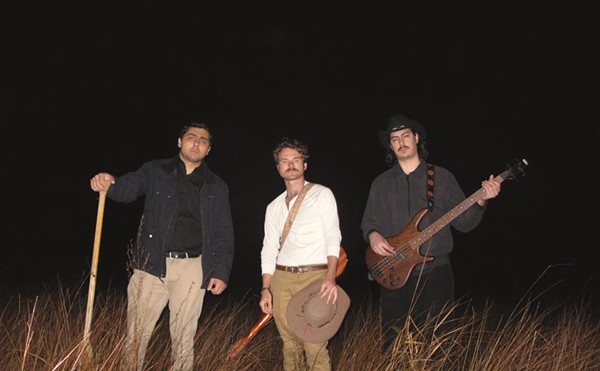When the debut single from rapper Lil Wayne’s newest album hit the Internet in early March, the circumstances surrounding the song couldn’t have been more foreboding. The track, “Lollipop,” featured vocal work from Static Major, a writer-producer known for his work with Jay-Z and Aaliyah. Static died of a brain aneurysm two weeks before the song’s official release. Additionally, the hip-hop world had pegged the single a make-or-break for Wayne, who had been promising a follow-up to his last outing for three years.
“Lollipop,” it turned out, was a blatant bid at pop crossover, a bizarre sex ballad with minimalist, downtempo keyboard plinks and an unabashed oral-sex theme (“I let her lick the (w)rapper,” “She lick me like a lollipop”). Wayne was defiant: “Dudes are gonna hate this one,” he told Blender. “Ugly dudes, that is.”
What followed was a dizzying ascent to stardom for Wayne that no one could have predicted. The song spent five weeks at No. 1 on the Billboard Hot 100, Wayne’s first top single and the first rap single, period, to take the position in two years. His full-length album, the one some suspected would never come out, sold over a million copies in its first week. The debate over Wayne’s artistic merits reached new heights in music-crit circles, while the single seeped into popular culture. The video for the song was viewed 20 million times in three months on YouTube, and the song became fodder for discussion in workplace break rooms across the country, even among people who might not usually listen to hip-hop.
“Lollipop” is sprinkled with the remnants of water-cooler rap songs of the past. Its candy-flavored euphemism was previously employed by 50 Cent for his 2005 single “Candy Shop,” which spent nine weeks at No. 1. “Lollipop”’s bridge has a digitally altered Static repeating the line “Drop it like it’s hot,” also the title of Snoop Dogg’s 2004 No. 1 hit. Incidentally, Wayne himself first brought the phrase “Drop it like it’s hot” to the public’s attention on the 1999 song of the same title; he was 17 years old at the time.
What’s less talked about is that the song was handed to Lil Wayne, practically finished and gift-wrapped, by Miami producer Jim Jonsin, a white biker with a smooth dome and a thick goatee. Jonsin was a DJ in the glory days of the Miami bass genre, finding regional success with the Miami label Cut It Up Def Records. While most of the Miami bass DJs packed up shop when the well went dry in the mid-’90s, Jonsin adapted to shifting trends in the industry and broke through with fellow South Floridian Trick Daddy, producing Trick’s Billboard Top 10 hit “Let’s Go” in 2004. When he stumbled upon the melody for “Lollipop,” he was sure it’d be a hit … for P. Diddy’s girl group, Danity Kane.
“I was in the studio working at Circle House `Studios, in Miami` working on tracks for the Danity Kane album,” says Jonsin. “I gave `“Lollipop”` to Diddy and them and they passed on it. They didn’t like it. So we took it over to my studio. Static Major was there working with Pleasure `Cooper, of R&B group Pretty Ricky` and Static thought it’d be great for Pleasure. So he started writing the top line for the song `the sung chorus “Shawty wanna thug/Bottles in the club”` and he was like, ‘You know, I hear Lil Wayne on the record. Let’s try to get it over to him.’”
After Static and Pleasure added a refrain (“Call me so I can make it juicy for ya”) and the “like a lollipop” hook, Jonsin did just that. Wayne loved it and he and engineer Deezle added some percussion. The final touch was their experiment with Auto-Tune software, which can turn a missed note in a song into spot-on pitch. Wayne’s voice was warbled to a barely recognizable alien singsong by overusing the software function.
“I knew it was going to be a hit record,” says Jonsin. “But I’ve never had anything like this. I’m into serious music, `so` it isn’t my favorite song, to be honest. But I can also appreciate a hit record.”
The track was the latest in a string of unusual, hyperanalyzed rap songs by Jonsin. Last year, another collaboration between him and Wayne, “I Feel Like Dying,” set blogs buzzing over its haunting sample of obscure singer-songwriter Karma Ann Swanepoel’s “Once” and Wayne’s stream-of-consciousness, “Strawberry Fields”–like imagery (“Playing touch football on Marijuana Street/You are so beneath my cleats”). In fact, the track – released on a free mixtape and only online – garnered too much attention. On May 27, Swanepoel’s publishing company filed suit against Lil Wayne for copyright infringement.
“It wasn’t supposed to be a pro-drug song,” says Jonsin. “It was supposed to be, like, ‘I’m not doing drugs, my father went through that.’ I thought it’d be crazy to flip it. I sampled `Karma’s` song in the studio and, I swear to you, it took me 10 minutes to do the beat. And the guy that works with me sent it out to Cash Money `Records, of which Wayne was the president` – he wasn’t supposed to do that. I was going to get `Karma` to play guitar over it and sing the chorus. `Wayne` loved it and went ahead and did it. It caused a lot of drama.”
The thrill of sampling unlikely material is nothing new to Jonsin – “Let’s Go” heavily sampled Ozzy Osbourne’s “Crazy Train” – but he says he does it for the melody, not to get people talking.
“I use the melody as a gauge,” he says. “I like the idea of making a classic. You never know when you’re going to do it, and I’ve been wrong, but you need melody and singing if you want a big record. Ask any child to sing their ABCs without the melody. They can’t do it!”
“Lollipop”’s reception was bittersweet for Jonsin. He lost a good friend in Static at a time that should have been unequivocally joyous: Jonsin’s fiancee gave birth to their son last month, around the same time “Lollipop” was sitting atop the charts.
“`Static` was a good friend of mine, so I wasn’t really thinking about `the success`. I was just thinking about how it’s a big record and he’s not here to see it. I mean … if it wasn’t for him, it wouldn’t have been as big.”
It was big, however, and Jonsin’s career is beginning to show it. He just returned from two weeks in Los Angeles producing new material for Beyoncé, and he’s currently working with, of all artists, Faith Hill and OneRepublic. It’s about as far from the Miami bass days as one can get.
Jonsin laughs, “I’m just trying to produce records, man!”
[email protected]















